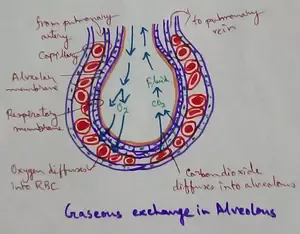Omission of Relative Pronoun
In English Grammar, we make use of Relative Pronoun to form Relative Clause to provide additional information about something without starting an entirely new sentence.
For Example: Mary is my friend. She is carrying an umbrella.
Mary is my friend who is carrying an umbrella.
· Relative Clauses start with Relative Pronouns such as that, which, who.
· Relative Pronouns can either be Subject or Object in a sentence.
If the verb comes right after a Relative Pronoun, then it is the Subject in a sentence.
For Example:
The woman who rode the scooter was very brave.
If there isn’t a verb, directly after the Relative Pronoun, then we know that is an Object.
For Example:
The woman whom John saw on the train was very familiar.
· Now, that we are familiar with Relative Pronouns forming Relative Clauses which function as either the Subject or Object in a sentence, we can know, in detail what rules govern the omission of Relative Pronoun.
For Example:
The dog that Mary is petting can be dangerous. (Object Clause)
The dog, Mary is petting can be dangerous. (Relative Pronoun can be omitted?)
For Example:
The dog that has brown fur is very adorable.(Subject Clause)
(Relative Pronoun cannot be omitted)
· This is the broadest and simplest category in which omission of Relative Pronouns can be justified to form Contact Clauses. Relative Pronouns can be omitted if it is an object, but not if it is a Subject.
For Example:
The water that surfaced was extremely murky.
(Verb after ‘that’, hence cannot be omitted)
For Example:
That water that she offered was very chilled.(No verb after “that”, hence, can be omitted)
The water, she offered was very chilled.
But, please note the below mentioned example in which the Relative Pronoun forming a Relative Clause , forms the Subject of the sentence but is still dispensable.
For Example:
Why not find someone who is less familiar with the case? (Subject Clause)
Why not find someone, less familiar with the case? (Relative Pronoun can be omitted)
· This, then brings us to the four factors which govern the omission of Relative Pronouns.
1. Is it a defining Relative Clause?
2. Does the main verb in the Relative Clause have a separate Subject?
3. Is the Relative Pronoun the first word in the Relative Phrase? (Or is it preceded by another word , for e.g. a preposition)
4. Is the word who/ which / that?
· If the answer to all the above questions is in affirmative, then Relative Pronouns can be omitted in all such cases.
· Thus, for all practical purposes Relative Pronoun can be omitted as long as it is not the Subject of the matrix verb in the Relative Clause.
Examples:
That’s the circus in which I work.
That’s the circus I work in.
That’s the table that I bought.
That’s the table I bought
That’s the girl whom I would marry.
That’s the girl I would marry.
· Please note in all the above instances Relative Pronouns like ‘who’, ‘which’, ‘that’ can be omitted but not ‘whose’.’
That’s the girl whose dress I like. (Cannot be omitted)
· If we have a defining Relative Clause, using the verb “be’, it can be dropped. The end result may be a Relative Clause or an Adjective Phrase or a Participle Phrase modifying the Noun.
For Example:
The man, who was walking ahead, was an undercover agent.
The man, walking ahead, was an undercover agent.
The elephant, who was interested in the bananas was rather genial.
The elephant, interested in the bananas was rather genial.
· But Defining Clause followed by the verb ‘be’ cannot be omitted if what’s then left behind is only the Adjective.
For Example:
The people who are blond, prefer detective fiction. (Omitting ‘who’ will make no sense to the remaining sentence)
English Grammar and Composition
From Omission of Relative Pronoun to HOME PAGE
Recent Articles
-
Formed Elements of Blood | Erythrocytes | ESR |Leukocytes |Neutrophils
Jan 15, 26 01:25 AM
Formed elements formed elements are constitute about 45 % of blood afeias haematocrit value packed cell volume mostly of red blood corpuscles and are of 3 types- erythrocytes, leukocytes and blood pla… -
What Is Plasma? | Blood Plasma | Proteins | Nutrients | Cholesterol
Nov 07, 25 10:29 AM
Blood is a mobile fluid which is a connective tissue and is derived from the mesoderm like cell any other connective tissue. Colour of blood is reddish and that flows inside the blood vessels by means… -
Disorders of Respiratory System | Tuberculosis | Pleurisy | Emphysema
Oct 28, 25 11:39 PM
Tuberculosis is very common disease and is caused by a type of bacteria called Mycobacterium tuberculosis. This disease causes different trouble in the respiration and infection of several parts of th… -
Regulation of Respiration | Respiratory Centres | Inspiratory Area |
Oct 14, 25 12:13 AM
Respiratory Centre is the area that controls the rate of respiration and it is observed to be located in medulla oblongata and pons. Respiratory Centre has the following will dispersed components like… -
Explain Transport of Gases | External Respiration | Tissue Respiration
Oct 09, 25 11:35 PM
In humans gaseous exchange is completed in the following ways the steps are - External Respiration or Breathing - Breathing in false taking in of Oxygen and giving out of carbon dioxide in the body. M…





New! Comments
Have your say about what you just read! Leave me a comment in the box below.